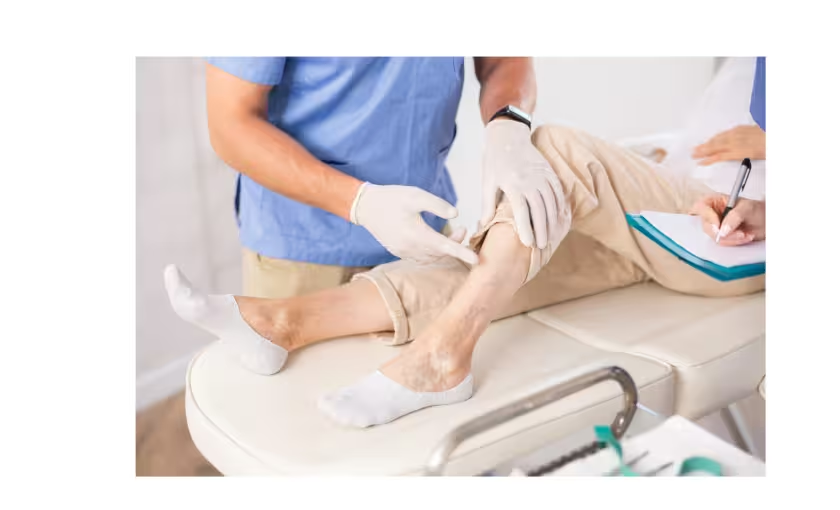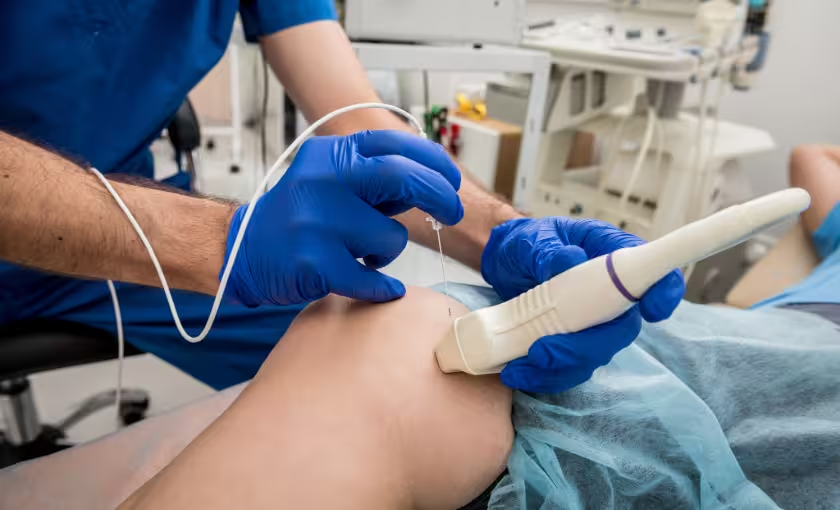Choosing the Right Vein Specialist: Your Guide to Finding Expert Vascular Care

Selecting the right vein specialist is one of the most important decisions you can make for your vascular health, as the expertise, experience, and approach of your chosen provider will significantly impact both your treatment outcomes and overall experience. Understanding what qualifications to look for, what questions to ask, and how to evaluate different providers empowers you to make an informed decision that ensures you receive the highest quality care for your vein problems.
The field of vein treatment has evolved dramatically in recent years, with new technologies, techniques, and approaches becoming available that require specialized training and experience to implement effectively. Not all providers who offer vein treatments have the same level of expertise, making it crucial to understand how to identify truly qualified specialists who can provide optimal care.
BASS Vein Center's commitment to excellence in vascular care, combined with extensive experience treating thousands of patients with various types of vein problems, provides a model for what patients should expect from a top-quality vein specialist. Understanding these standards helps patients evaluate their options and choose providers who can deliver the expert care they deserve.
Understanding Vein Specialist Qualifications
The qualifications of a vein specialist encompass multiple areas of training, certification, and experience that together indicate their ability to provide expert care for vascular conditions. Understanding these qualifications helps patients identify providers who have the knowledge and skills necessary for optimal treatment outcomes.
Medical education and training form the foundation of a vein specialist's qualifications, with board-certified physicians typically having completed medical school, residency training in a relevant specialty, and often additional fellowship training specifically focused on vascular medicine or interventional procedures.
Board certification in relevant specialties such as vascular surgery, interventional radiology, dermatology, or other appropriate fields indicates that a physician has met rigorous standards for education, training, and competency in their specialty area. Board certification is maintained through ongoing education and periodic re-examination.
Fellowship training in vascular medicine, interventional procedures, or related subspecialties provides additional specialized education beyond residency training, focusing specifically on the diagnosis and treatment of vascular conditions. This advanced training is particularly valuable for complex vein problems.
Continuing medical education requirements ensure that qualified specialists stay current with the latest developments in vein treatment, including new technologies, techniques, and research findings that can improve patient outcomes.
Professional society memberships in organizations such as the American Venous Forum, Society for Vascular Surgery, or other relevant professional organizations indicate a commitment to staying current with developments in the field and maintaining professional standards.
Hospital privileges and affiliations with reputable medical institutions provide additional validation of a physician's qualifications and ensure access to advanced facilities and resources when needed for patient care.
Experience and Expertise Considerations
The experience and expertise of a vein specialist in treating conditions similar to yours is crucial for achieving optimal outcomes, as complex vein problems often require nuanced understanding and skilled technique that comes from extensive clinical experience.
Volume of procedures performed is an important indicator of experience, with specialists who perform high volumes of vein treatments typically having better outcomes due to their extensive practice with various techniques and patient situations.
Years of practice in vein treatment provide valuable experience in managing different types of cases, handling complications, and refining techniques to optimize patient outcomes. However, years of practice should be combined with evidence of ongoing education and skill development.
Range of treatments offered indicates the breadth of a specialist's expertise and their ability to provide comprehensive care for different types of vein problems. Specialists who offer multiple treatment options can tailor their approach to each patient's specific needs.
Complexity of cases handled demonstrates a specialist's ability to manage challenging situations and provide care for patients with advanced or complicated vein problems. Experience with complex cases often translates to better outcomes for all patients.
Outcomes data and success rates, when available, provide objective evidence of a specialist's effectiveness in treating vein problems. Reputable specialists should be able to discuss their outcomes and success rates with potential patients.
Research and publications in peer-reviewed medical journals indicate a specialist's commitment to advancing the field and staying current with the latest developments in vein treatment.
Technology and Treatment Options
The availability of advanced technology and comprehensive treatment options at a vein specialist's practice indicates their commitment to providing state-of-the-art care and their ability to offer the most appropriate treatments for each patient's specific condition.
Modern diagnostic equipment, including high-quality duplex ultrasound systems, is essential for accurate assessment of venous function and proper treatment planning. Advanced diagnostic capabilities enable more precise treatment and better outcomes.
Range of treatment modalities available should include both conservative and advanced options, allowing the specialist to recommend the most appropriate approach for each patient's condition and preferences. A comprehensive range of options indicates expertise in multiple techniques.
Latest technology adoption demonstrates a practice's commitment to staying current with advances in vein treatment and providing patients with access to the most effective and least invasive treatment options available.
Minimally invasive techniques should be emphasized, as these approaches typically offer better patient experiences, faster recovery times, and excellent outcomes compared to older, more invasive surgical methods.
Combination treatment capabilities allow specialists to address complex cases that may require multiple different approaches, providing comprehensive care that addresses all aspects of a patient's vein problems.
Equipment maintenance and quality assurance programs ensure that diagnostic and treatment equipment functions optimally and provides accurate, reliable results for patient care.
Practice Environment and Patient Care
The environment and culture of a vein specialist's practice significantly impact the patient experience and can indicate the quality of care and attention patients can expect to receive throughout their treatment journey.
Office environment and facilities should be clean, modern, and well-organized, with appropriate equipment and technology readily available. The physical environment often reflects the practice's attention to detail and commitment to quality.
Staff qualifications and training are crucial for providing excellent patient care, with knowledgeable, experienced staff members who can answer questions, provide support, and ensure smooth coordination of care throughout the treatment process.
Patient communication approaches should emphasize clear, thorough explanations of conditions and treatment options, with specialists who take time to answer questions and ensure that patients understand their care plans.
Scheduling flexibility and availability indicate a practice's commitment to accommodating patient needs and providing timely access to care when needed.
Follow-up care protocols should be comprehensive and clearly defined, ensuring that patients receive appropriate monitoring and support throughout their recovery and long-term care.
Emergency availability and after-hours support provide peace of mind for patients and ensure that urgent concerns can be addressed promptly when they arise.
Insurance and Financial Considerations
Understanding how different vein specialists handle insurance and financial matters helps ensure that patients can access the care they need without unexpected financial burdens or complications.
Insurance participation and network status affect both the availability of care and the out-of-pocket costs for patients. Specialists who participate in major insurance networks provide better access and lower costs for most patients.
Prior authorization assistance from the practice staff helps ensure that necessary approvals are obtained efficiently and that treatment can proceed without delays or coverage issues.
Financial counseling services help patients understand their insurance benefits, estimate out-of-pocket costs, and explore payment options before beginning treatment.
Payment plan options and financing alternatives make treatment more accessible for patients who may not be able to pay for care upfront, ensuring that financial considerations don't prevent necessary treatment.
Transparent pricing policies help patients understand the costs associated with their care and avoid unexpected expenses during treatment.
Insurance appeals support from experienced staff can help patients obtain coverage for medically necessary treatments that may be initially denied by insurance companies.
Questions to Ask Potential Specialists
Preparing thoughtful questions for consultations with potential vein specialists helps ensure that you gather the information needed to make an informed decision about your care provider.
Qualification questions should cover the specialist's education, training, board certifications, and experience with conditions similar to yours. Understanding their background helps assess their ability to provide expert care.
Experience questions might include asking about the number of procedures they've performed, their success rates, and their experience with complex cases or complications.
Treatment approach questions should explore their philosophy of care, their preferred treatment methods, and how they determine the most appropriate treatment for each patient.
Technology questions can help you understand what diagnostic and treatment equipment they use and whether they stay current with advances in vein treatment technology.
Outcome questions should address their success rates, patient satisfaction, and how they measure and track treatment outcomes.
Support questions might cover their follow-up care protocols, availability for questions or concerns, and how they handle complications or unexpected issues.
Red Flags to Avoid
Understanding warning signs that might indicate a less-than-optimal vein specialist helps patients avoid providers who may not deliver the quality of care they deserve.
Pressure tactics or high-pressure sales approaches should be avoided, as reputable specialists focus on education and informed decision-making rather than pressuring patients into immediate treatment decisions.
Unrealistic promises or guarantees about outcomes should be viewed with skepticism, as honest specialists will discuss realistic expectations and potential risks along with benefits.
Limited treatment options or one-size-fits-all approaches may indicate insufficient expertise or equipment to provide comprehensive, individualized care.
Poor communication or unwillingness to answer questions thoroughly suggests that the provider may not prioritize patient education and informed consent.
Inadequate facilities or outdated equipment may indicate a lack of commitment to providing state-of-the-art care and optimal patient outcomes.
Lack of proper credentials or board certification should be a significant concern, as these qualifications are essential for ensuring competent care.
The BASS Vein Center Advantage
BASS Vein Center exemplifies the qualities that patients should look for in a vein specialist, combining extensive expertise, advanced technology, comprehensive treatment options, and exceptional patient care to deliver optimal outcomes for patients throughout the East Bay and North Bay regions.
Physician expertise at BASS Vein Center includes board-certified specialists with extensive training and experience in vascular medicine, ensuring that patients receive care from truly qualified experts in the field of vein treatment.
Comprehensive services offered include the full range of diagnostic and treatment options for vein problems, from conservative management to the most advanced minimally invasive procedures, allowing for personalized treatment plans that address each patient's specific needs.
Advanced technology and equipment at BASS Vein Center ensure that patients have access to the latest diagnostic and treatment capabilities, providing the most accurate assessments and effective treatments available.
Patient-centered approach emphasizes education, communication, and individualized care, ensuring that each patient understands their condition and treatment options and feels supported throughout their care journey.
Multiple convenient locations throughout the East Bay and North Bay regions provide accessible care for patients in Walnut Creek, Antioch, Brentwood, Concord, Pleasanton, Castro Valley, Oakland, and Napa.
Proven track record of successful outcomes and satisfied patients demonstrates the effectiveness of BASS Vein Center's approach to vein care and their commitment to excellence in patient outcomes.
Making Your Decision
After gathering information about potential vein specialists, making your final decision requires careful consideration of all factors that are important to your specific situation and preferences.
Prioritizing factors that are most important to you, such as location, insurance participation, specific expertise, or treatment philosophy, helps guide your decision-making process.
Consultation experiences with different specialists can provide valuable insights into their communication style, approach to care, and whether you feel comfortable and confident in their abilities.
Second opinions may be valuable, particularly for complex cases or when major treatments are being considered. Most reputable specialists welcome second opinions and will provide records to facilitate consultation with other providers.
Trust and comfort level with your chosen specialist are crucial for a positive treatment experience, as you'll be working closely with them throughout your care journey.
Practical considerations such as location, scheduling availability, and insurance coverage should also factor into your decision, as these affect your ability to access and continue care.
Long-term relationship potential should be considered, as vein problems may require ongoing monitoring and care, making it important to choose a specialist you can work with over time.
Preparing for Your First Appointment
Once you've chosen a vein specialist, proper preparation for your first appointment helps ensure that you get the most value from your consultation and begin building a positive relationship with your care provider.
Medical records gathering should include any previous vein treatments, relevant medical history, current medications, and diagnostic tests that might be relevant to your vein care.
Insurance verification ensures that you understand your coverage and any requirements for referrals or prior authorizations that might be needed for your care.
Question preparation helps ensure that all your concerns are addressed during your appointment and that you get the information you need to make informed decisions about your care.
Symptom documentation provides valuable information for your specialist and helps ensure that all aspects of your condition are properly evaluated and addressed.
Realistic expectations about the consultation process and potential treatment recommendations help ensure that you're prepared for the information and options that may be presented.
Open communication about your goals, concerns, and preferences helps your specialist provide the most appropriate recommendations for your specific situation.
Long-Term Partnership in Vascular Health
Choosing the right vein specialist is the beginning of what may be a long-term partnership in maintaining your vascular health, making it important to select a provider who can support your ongoing needs and goals.
Ongoing monitoring and preventive care may be important for maintaining your vascular health over time, particularly if you have risk factors for developing new vein problems.
Treatment of new problems, if they develop, can often be addressed more effectively when you have an established relationship with a qualified specialist who understands your history and needs.
Coordination with other healthcare providers ensures that your vein care is integrated with your overall healthcare and that all your providers are working together for optimal outcomes.
Education and support from your vein specialist help you understand how to maintain your vascular health and make informed decisions about your care throughout your life.
Access to new treatments and technologies through your relationship with a progressive specialist ensures that you can benefit from advances in vein care as they become available.
Advocacy and support from your specialist can be valuable when dealing with insurance issues, coordinating care with other providers, or addressing any concerns that arise over time.
Conclusion: Your Path to Expert Vein Care
Choosing the right vein specialist is a crucial decision that can significantly impact both your treatment outcomes and overall experience with vein care. By understanding what qualifications to look for, what questions to ask, and how to evaluate different providers, you can make an informed decision that ensures you receive the expert care you deserve.
The key to finding the right vein specialist lies in thorough research, careful evaluation of qualifications and experience, and choosing a provider who demonstrates expertise, uses advanced technology, and prioritizes patient care and communication.
BASS Vein Center represents the gold standard in vein care, combining board-certified expertise, comprehensive treatment options, advanced technology, and exceptional patient care to deliver optimal outcomes for patients throughout the East Bay and North Bay regions.
For individuals seeking expert vein care, understanding how to choose the right specialist provides the foundation for receiving treatment that can significantly improve their vascular health and quality of life. Taking the time to make an informed choice about your vein specialist is an investment in your long-term health and well-being.
Don't settle for anything less than expert vein care when your vascular health and quality of life are at stake. Contact BASS Vein Center today at (925) 489-1684 to experience the difference that true expertise, advanced technology, and exceptional patient care can make in your vein treatment journey. Your choice of vein specialist matters, and BASS Vein Center is committed to providing the expert care and outstanding outcomes you deserve for optimal vascular health and improved quality of life.
Take the First Step Toward Healthier Legs








